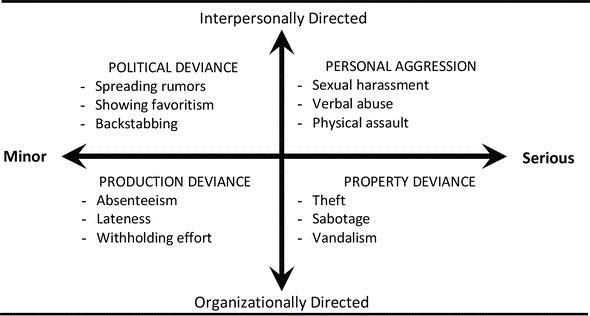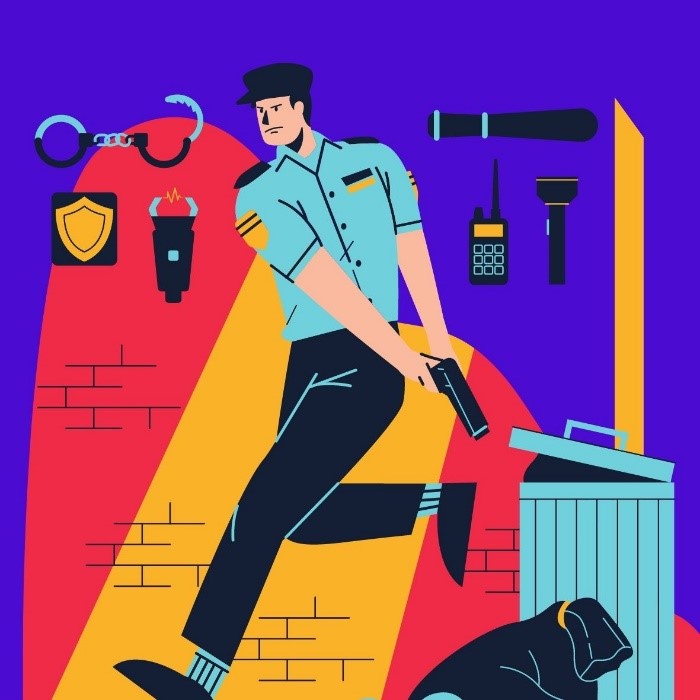Techniques of Neutralization – Criminology
Introduction
The techniques of neutralization are a set of psychological and social processes that enable people to commit crimes without remorse and offer them the opportunity to have some control over their life. The term was coined by sociologist Edwin Lemert, and it is widely used in criminology.
In this article, I will be talking about the different techniques of neutralization, how they work, and what you can do about it if you find yourself using these methods in your everyday life.
Gresham Sykes and David Matza: Theory of Delinquency
Gresham Sykes and David Matza developed the theory of neutralization, both at the University of Chicago.
Their theory explains how some people overcome internal restraints and justify their behaviors to perpetrate otherwise reprehensible crimes. They carried out empirical research on delinquency.
They developed two main techniques of neutralization, which are:
- Rationalization
- Denial of responsibility.
Rationalization-criminology
The rationalization technique is peculiar thinking, which means using rationalizations or excuses to explain undesirable behavior.
Rationalization is a subcategory of the cognitive category in sociology. It is the process of making something acceptable when it is generally unacceptable by employing a set of self-serving justifications. The process of rationalization can be viewed as a method of behavior control.
People can freely rationalize most conduct, thereby justifying criminal or deviant actions as socially acceptable and morally justified. Rationalizations can be used to explain away their behaviors and convince themselves that they are right in committing the crime or deviant act.
Examples are: I do not have to pay for this beer because I am a good customer; the government is unfair and not allowing me my rights; I had to hit him; he started it, etc.
Denial of Responsibility-criminology
The technique of denial of responsibility is an excuse or justification used by individuals to avoid personal responsibility for their actions. In this case, it is easy to observe that the person does not take responsibility for their conduct.
When people go to the extent of creating an excuse, they are not likely to be held responsible for any wrongdoing. It may be possible to deny responsibility by blaming someone or something for their actions or behavior in some cases.
It can include people being unaware of their behavior or the consequences of their actions. They may say they were coerced into committing a crime by someone else, absolving themselves from any responsibility.
Denial of responsibility is a process of ‘skirting the law’ in which an individual will be technically within the boundaries of the law, but their behavior is just as guilty.
For example, using a phone in your car to call someone and continually pressing the redial button to initiate a phone call without paying is not technically breaking into someone else’s operator service. However, it can be considered a denial of responsibility because you are causing the calls to be made.
Another form of denial is claiming that someone else made them do it or something else caused them to behave that way. They may also blame a substance, person, or environment and not take responsibility for their actions.
Sykes and Matza had also discovered that the neutralization techniques used by criminals are malleable and can be changed at any time according to their circumstances.
The Five Techniques of Neutralization
Sykes and Matza established that there are five techniques of neutralization, which consist of:
- Denial of injury and minimization of the amount of damage done,
- Denial of the victim and blame the victim if possible,
- Appeal to higher loyalties and exceptional circumstances,
- Denial of the crime or the involvement in the criminal act,
- Appeal to higher loyalties.
Denial of Injury and Minimization of Damage Done-criminology
Criminals may deny that the injury to the victim is severe. They may deem it as trivial or unimportant, therefore, not an injury. It may be as simple as saying, ‘the victim was not hurt very badly.’
In some cases, if they can convince themselves that the victim deserved it, they may believe that the harm was deserved.
Criminals may minimize the amount of damage done by claiming that they did not damage anything. They only stole an object or money.
In some cases, sociopathic individuals may have a hard time understanding that they may have felt the victim’s pain. They may need to see or feel it to understand that the damage was severe and that they did cause some injury.
Denial of Victim and Blame the Victim if Possible-criminology
Criminals may deny there being a victim in the situation, or if they see a victim, they may blame the victim for being in an unfortunate situation.
In some cases, they may say that if the person were not there or did not make the situation worse, they would not have had to do what they did.
Criminals may state that the victim deserved it or had it coming. They may say that the victim’s behavior or actions were to blame for their injury or misfortune. Offenders may see their victims as deserving of whatever harm that they do to them.
For example, a person may be driving too slowly or stopping in the middle of the street. Someone may pull in front of them, honk their horn aggressively and drive recklessly to get around them or close to them.
In some cases, the driver may be much younger than the victim, but they may not care that they are causing an inconvenience to someone else. They may even challenge the victim or intimidate them and then pass them with reckless abandon.
Appeal To Higher Loyalties-criminology
Sometimes the criminal may claim that they are acting in the name or interest of a group. They may say that their behavior is for the group’s greater good even though it harms others. They may use the excuse that “what’s bad for them is good for me.”
They may say that they will attack an enemy or threat to a group, even if the person does not necessarily have any affiliation with the group. Many young people have joined gangs for this reason, and many women are battered because they did not act the way a superior male wanted them to.
It is important to realize that many criminal acts are carried out in the name of higher loyalties because they benefit a group of people in some way.
Criminals may feel justified and do not see their behavior as wrong because they are doing something good for the group or benefiting a superior person somehow.
Denial of Crime or Involvement-criminology
A criminal may deny that they were involved in the criminal act. They may say that someone else did it or don’t remember doing what they are accused of doing.
They may even deny that the criminal act or what they did was a crime at all. An offender may say “it was just a joke” or “he deserved it” if the victim disapproved of their behavior.
Appeal to Higher Authority-criminology
Criminals may attempt to gain support from someone more powerful than them. They may appeal to his superior status. In some cases, they may even try to reason with him or threaten harm if he is not on their side.
Delinquent people may attempt to use their parent’s authority to support their actions and get what they want. These people use the law to justify their deviant acts.
Adolescent people may use the excuse of being underage to justify or take the blame off of themselves. They may say that they did not know better or were not old enough to know what they were doing.
Delinquents may use common excuses like “the devil made me do it,” “I did not know any better, I was raised in a bad environment,” or “my parents did the same thing to me.”
A more common excuse by juvenile offenders is that “I am too young to know or be held responsible for my actions. I was just a kid. My parents should have taken better care of me.”
These are all neutralization techniques, and they can be used to get sympathy, support, or an advantage. The techniques also provide room for guilt deviation.
Adolescents commit more crimes than adults and use these neutralization techniques more often.
What are the Implications of the Neutralization Theory?
It is important to recognize that every offender does not use the techniques of neutralization. Criminals do not necessarily use all the methods listed above. They are also not all used at once.
- Neutralization theory is critical because it explains how an offender can think they are justified in committing a crime.
- The techniques of neutralization help criminals gain sympathy and support from others or deflect blame to avoid getting into trouble.
- It helps people to understand how criminals think and helps criminal behavior to be more understandable.
- By neutralization theory, crimes can still occur even if the individual has a conscience, even if they know what they are doing is wrong.
- The theory also helps people understand how some juveniles and women commit criminal acts without recognizing the harm in their actions. This is because they are motivated to do so by a group or authority.
You may be interested in Criminal Theories
Neutralization Techniques and Sociology
In sociology, a neutralization technique will be used as an excuse for deviant behavior to avoid getting into trouble.
The techniques are used mainly by delinquents and juvenile offenders, but anyone can use them. An individual will use the techniques of neutralization to explain their behavior, so it is not seen as being wrong.
Criminals will use the techniques to avoid any responsibility for their actions and not be held accountable. These neutralizations affect the society they exist is because the behavior is not stopped or held accountable.
You may be interested in Primary Theories of Crime Causation
Take Away
The techniques of neutralization are a powerful tool and can be used to get sympathy, support, or an advantage. The techniques have been studied in sociology as well as criminology. They help criminals avoid responsibility for their actions and affect society because the behavior is not stopped. Their good side is that offenders get a chance to explain their behavior to the authorities in a way that is not threatening but neutral.
Thank you for reaching far, and we’d like to remind you that our top sociology tutors are ready to ace your sociology essay in case you are still in doubt, have a very busy schedule, or just want a perfect job. All you need to do is click the green button below and follow the simple steps!







